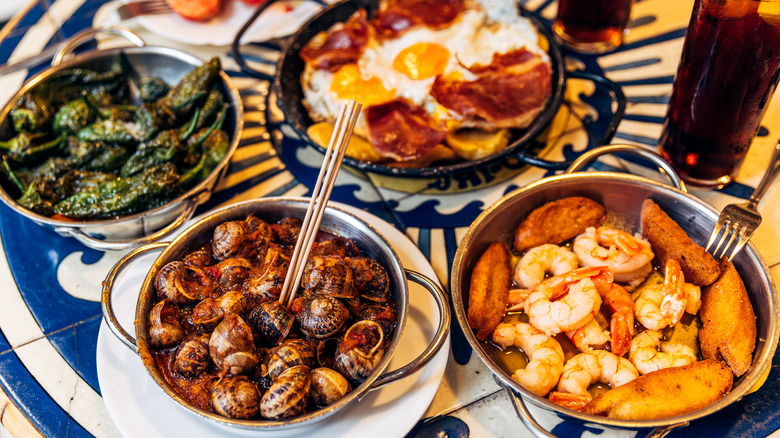Gordon Ramsay may be famous for his fiery on-screen persona, but when he opens up about career growth and resilience, his guidance is surprisingly grounded and generous. In a candid Reddit AMA and a conversation on the Super U Podcast, the Michelin-starred chef encouraged young cooks to rethink how they measure progress. His message is clear: stretch yourself beyond familiar routines, protect your stamina with well-timed breaks, and trust that the hours you invest today will carry you into kitchens anywhere in the world.
From TV’s Toughest Chef to Candid Mentor: What Ramsay Revealed on Reddit
Ramsay’s reputation is built on relentless standards in high-pressure environments, from Hell’s Kitchen to Kitchen Nightmares. Yet his Reddit AMA showed a different side. He emphasized staying focused on the big picture rather than getting discouraged by day-to-day grind. Progress in the culinary world rarely looks linear. You might not feel like you are blazing ahead, but the repetition, discipline, and precision you develop on the line become a portable skill set that travels with you to any restaurant, any city, any culture.
He also urged young chefs to be honest with themselves about burnout. Cooking at a high level is intense, and the pursuit of excellence can blur into exhaustion. Ramsay’s advice was to take a deliberate pause when you hit the wall. A short, intentional break can reset your perspective and restore creativity. Walk away for a few weeks if you need to. When you return, you are often sharper, calmer, and more capable of the consistency great kitchens demand.
The Power of a Strategic Break in a High-Pressure Kitchen
Early in his career, Ramsay took a few months to work as a private chef on a yacht. That detour became a pivotal lesson. In a smaller, self-contained setting, he realized how concentrated focus can accomplish in an hour what might otherwise take an entire day in a busy professional kitchen. The experience validated the fundamentals he had already learned and highlighted how efficiency, organization, and clarity of purpose accelerate output.
The takeaway for aspiring chefs is simple but vital. A strategic change of pace does not derail your progress. It can clarify it. Stepping into a different environment forces you to test your skills in new conditions, giving you measurable proof of how far you have come. When you walk back into a new establishment after time away, you bring fresh confidence and a stronger understanding of your strengths.
Push Beyond Your Comfort Zone: Insights from the Super U Podcast
On the Super U Podcast with Erik Qualman, Ramsay doubled down on the importance of discomfort as a catalyst for growth. He urged young chefs to challenge their assumptions by immersing themselves in unfamiliar situations. That could mean moving to a new city, learning a second language, or working with cuisines and techniques outside your usual orbit. Without the safety net of family, a partner, or a familiar routine, you build character and self-reliance the industry cannot teach you any other way.
This mindset resonates with Ramsay’s own broad culinary perspective, which embraces influences from Asia, France, Morocco, and beyond. Exposure to varied culinary traditions refines your palate and widens your toolkit. Over a few years, the compound effect on your confidence can be profound. You become adaptable, and adaptability is a superpower in modern hospitality.

Actionable Steps for Aspiring Chefs
- Plan a mini sabbatical when burnout looms. Coordinate with your team, set a timeline of two to four weeks, and use the time to recharge rather than quit. Come back with clear goals for your next phase.
- Stage across different concepts. Spend short stretches in kitchens with distinct styles, from tasting-menu fine dining to high-volume brasseries. Observe systems, stations, and service flows to expand your operational fluency.
- Take a role in a smaller setting. A private villa, yacht, or boutique lodge can teach speed, prioritization, and self-sufficiency you might not develop in a large brigade.
- Learn a second language related to your culinary interests. Even conversational proficiency unlocks opportunities and deepens your understanding of regional techniques.
- Keep a skills journal. Document dishes, techniques, and service lessons weekly. This record makes growth visible and helps you translate experience into future roles.
- Build a support network. Connect with mentors, peers, and suppliers who will challenge you and keep you grounded during long seasons on the line.
Skills That Travel: Turning Hours on the Line into a Global Career
Ramsay’s core message is that the daily repetition of professional cooking creates a portable foundation. Mise en place discipline, clean station habits, communication under pressure, timing, and consistency are universal. Whether you are cooking in London, New York, Marrakech, or Tokyo, these fundamentals set the tempo of a smooth service and the quality bar guests feel on the plate.
That is why the grind matters even when recognition feels distant. Every rushed prep hour, every perfectly timed fire, every recovered mistake trains your judgment. Over time, it is not just about cooking faster. It is about cooking smarter, predicting bottlenecks, and leading calmly when the tickets stack up. Those are the moments that quietly build leadership potential and make you valuable to any kitchen team.
The yacht lesson underscores this. When the environment shrinks, your focus sharpens and waste disappears. You see how much of your effort is skill and how much is noise. Bring that clarity back to a large operation and you become the person who finds efficiencies others miss.
Staying Resilient Without Losing Your Edge
Ambition drives chefs to push hard. But resilience is what turns drive into a sustainable career. Ramsay’s perspective reframes resilience as a mix of honest self-assessment, strategic rest, and structured discomfort. When you protect your energy with a well-timed pause and stretch beyond your familiar patterns, you preserve the curiosity that drew you to the kitchen in the first place.
If you are feeling stuck, it does not mean you are failing. It often means your growth curve is about to bend. Take a breath, reset your plan, and get back to the stove with intention rather than inertia.
Why This Matters for Chefs Today
The modern kitchen is evolving, and so is the definition of success. Ramsay’s advice nudges the industry away from the myth that nonstop grind is the only route to greatness. By pairing disciplined work with intentional breaks and real-world challenges, young chefs build careers that last. The result is better food, healthier teams, and a more inclusive profession that values both excellence and longevity.
Work hard, step outside your comfort zone, and do not be afraid to pause when the pressure peaks. The skills you sharpen now will open doors around the world, and your confidence will grow with every kitchen you conquer.
